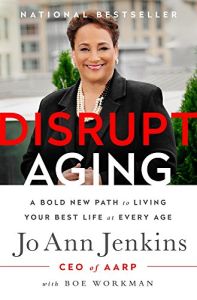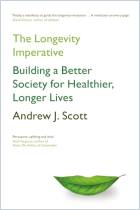加入 getAbstract 阅读摘要

加入 getAbstract 阅读摘要
Jo Ann Jenkins
Disrupt Aging
A Bold New Path to Living Your Best Life at Every Age
Public Affairs, 2016
看看什么内容?
Don’t pine for lost youth; delight in the freedom and opportunities that come later in life.
Recommendation
Jo Ann Jenkins, CEO of AARP (formerly the American Association of Retired Persons), offers a rallying cry to combat outdated stereotypes of older people. Ageism affects how people see themselves, influences public policy, shapes employment practices and undermines how society treats people age 50 and older. Jenkins argues that this growing sector drives economic growth, offers a desirable market, and represents a valuable source of talent and experience. She advocates shifting from the view of aging as a decline to regarding your later years instead as an opportunity for personal development and contribution with a renewed focus on health, vitality and financial resilience. getAbstract recommends Jenkins’ manual as a must-read for anyone who cares about someone, employs someone or who is – or is going to be – someone age 50 and older.
Summary
About the Author
Jo Ann Jenkins is the CEO of AARP (formerly known as the American Association of Retired Persons) and is the former chief operating officer of the US Library of Congress. To check your choice of a place to live on AARP’s livability index, see www.aarp.org/livabilityindex.



















Comment on this summary
Much of it runs counter to the traditional messaging that is so prevalent today, yet it makes perfect sense.
And I love the idea of your "midlife quest".
"When you abandon the “aging-as-decline” mindset, the transition becomes exciting. You’re free to pursue new interests and opportunities. You embark on a midlife quest for happiness, peace, fulfillment, and continued development."
And you have to ask: Who really wants to retire these days? It's a dead idea of a previous era - if you can excuse the pun.